One of my favourite movies of all time is Ex Machina—a 2014 science fiction thriller about A.I directed by Alex Garland. The plot centres around an advanced version of the Turing test performed between a guy named Caleb and a humanoid robot named Ava. The test is orchestrated by Nathan, Caleb's boss and the billionaire genius CEO of a Google-esque company.
The best scene in the movie is the out-of-nowhere dance sequence between Nathan, who's incredibly drunk, and Kyoko, a failed predecessor to Ava. The scene is kind of hilarious but also super unsettling. It says so much about Nathan without any actual dialogue. He's lived alone for years building these robot AIs, yet he also made time to choreograph and perfect a dance routine with his robot slave. Just the right mix of creepy and funny. It's scenes like this, and the movie in general, that made me a fan of Alex Garland.
 it's like if Elon Musk directed Saturday Night Fever
it's like if Elon Musk directed Saturday Night Fever
Before he wrote screenplays and directed movies, Garland started out as a novelist in the 90s. His first novel, The Beach , became a cult classic for young adults after it was published in 1996. Fellow British author Nick Hornby called it "a Lord of the Flies for Generation X". Despite being a lazy, entitled millennial, I wanted to read it anyway to see if it still resonated with my generation. I figured that if Garland could produce the greatest drunken-creepy-funny-robot-human dance scene of all time, his novels probably aren't half bad.
Vamos a la Playa
Living with death. Time limits on everything you enjoy. Sitting on a beautiful beach, waiting for a fucking time limit to come up. Affecting the way you look at the sand and the sunsets and the way you taste the rice. Then moving on and waiting for it to happen all over again. For eleven years!" Mister Duck shivered. "...Then to have that cancer lifted. To think you've found a cure...That's what you can't imagine, Rich.
— Alex Garland, "The Beach" pg. 584
As its name implies, this book is all about a beach. Not just any beach though...the Beach. The perfect beach. An idyllic paradise in the Gulf of Thailand untouched by commercialization and the tourist industry. A place where you can enjoy the beauty and natural wonder of the ocean, the warm sun, and a serene sense of calm and relaxation without any time limits.
Of course, this is only what Richard, the protagonist and narrator, imagines is on the other side of a black X marked on a hand-drawn map left on his hostel bed. The map is placed there by a deranged Scotsman, referring to himself as Daffy, who Richard meets the previous night. It's important to mention that Daffy commits suicide immediately after drawing the map and leaving it on Richard's bed...which apparently doesn't concern Richard much as he decides to search for this paradise anyway. What great adventure doesn't start with a suicide?
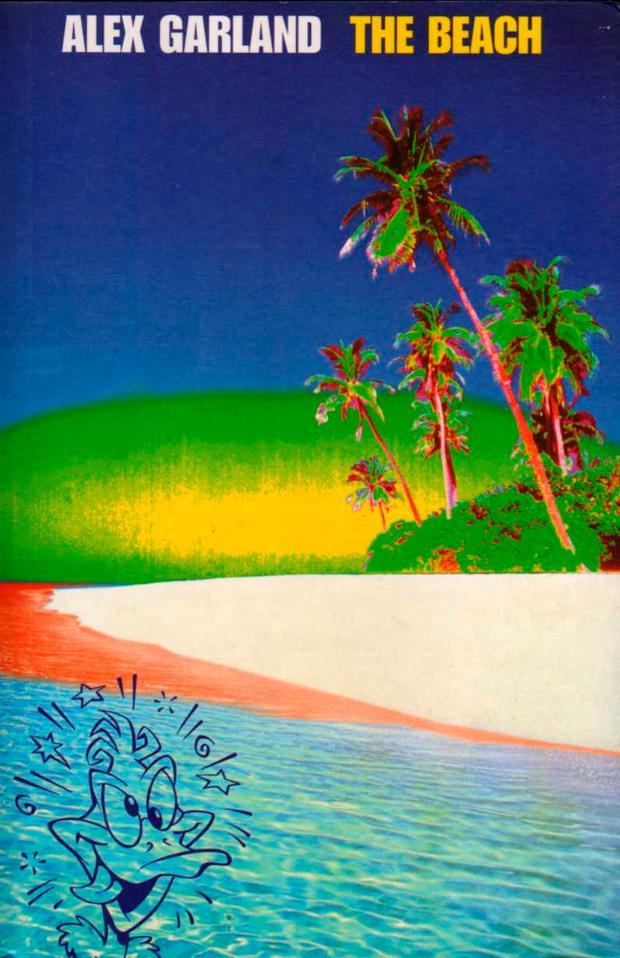
The first third of The Beach revolves around Richard's quest to find this mysterious beach, and the rest of the book is about his time there. Richard is accompanied by a French couple, Etienne and Françoise, that he met at the same hostel on Khao San Road. Together they set out on a difficult and dangerous journey to reach the Beach with only a dead man's map to guide them.
On the surface, Richard seems to be taking on a completely irrational amount of risk and effort to find a beach he knows nothing about. But the Beach represents an escape in Richard's eyes, and he is desperate to escape by the time we meet him in the story. Having already travelled extensively since he was a teenager, Richard is jaded by the pre-packaged experiences and tourist traps that have pervaded his travels thus far. He is looking for something authentic, and something without an expiration date. Since his teenage years, Richard has been in pursuit of such a paradise, along with every other traveller he meets along the way. The rate of "beach expiration" is so fast that up-to-date recommendations are highly valued, as Richard recalls:
Exams out of the way, my friends and I scattered ourselves around the globe. The next August we started coming back, and I learned that my baby-sitter's paradise was yesterday's news. Koh Phangan, the next island along, was Thailand's new Mecca.
A few years later, as I checked my passport and confirmed my flight to Bangkok, a friend telephoned with advice. "Give Koh Phangan a miss, Rich," she said. "Hat Rin's a long way past its sell-by date. They do printed flyers for the full-moon parties. Koh Tao. That's where it's at."
— Garland, pg. 84
When Generation X was coming of age, insider information like this was vital. Nowadays, because of the speed and reach of the internet, there are no travel secrets anymore.
Today, if there's a nice beach in Thailand, it's going to be instagrammed, geotagged, blogged, vlogged, and googled, quickly leading to "printed flyers" and overpriced Pad Thai. The Beach takes place during the twilight era of backpacking, when secrets could still be kept.
X Marks The Spot
Generation X is generally perceived as the "slacker" generation that lost faith in the institutions that had anchored society for most of the 20th century. Their cynicism was due to the belief that they had inherited a host of socioeconomic problems caused by the preceding generations. Some research suggests this bleak outlook wasn't specific to generation X, but rather a trend seen across all age groups throughout the late 80s and 90s. Regardless, the rise of pervasive disaffection felt by adolescents during this period elicited a common response: hedonism and apathy .
In defiance of the cultural norms impressed upon them, gen-Xers sought escape through the use of drugs, extreme sports, and exotic travel. Richard represents this ethos in The Beach—constantly restless and unhappy, even after reaching paradise.
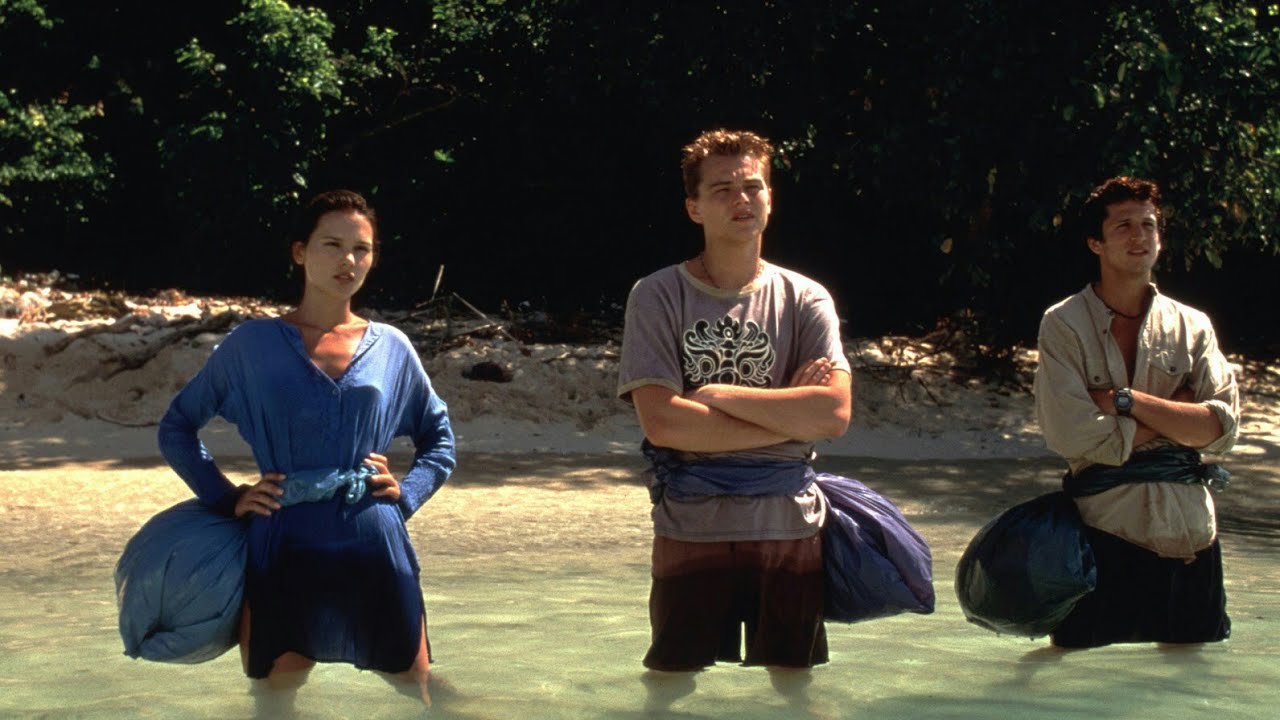 It was also made into a shitty movie with Leonardo Di Caprio
It was also made into a shitty movie with Leonardo Di Caprio
As a group of strangers are on their way to "the Beach" later in the book, Richard is tasked with monitoring them from a distance. Even though their arrival would signal an end to his paradise, Richard realizes he is hoping they make it anyway:
It was at that point I realized my mistake, because what I registered, while entertaining this optimistic thought, was disappointment. The strange truth was that I didn't want them to leave. Neither, as the root of my frustration, did I want them to stay put. And that left only one possibility; the worst-case scenario was the best-case scenario. I wanted them to come.
— Garland, pg. 395
Richard just wants to feel alive; he's looking for excitement, whether it's good or bad.
I think this defiance against pre-packaged, commercialized experiences died with Generation X. With the rise of the internet, smartphones, and social media, Millennials aren't concerned with finding truly fulfilling experiences anymore...we only care about framing our experiences correctly. The record of our vacation is more important than how much we actually enjoyed it. If you can post a picture of a beautiful beach on Instagram, it doesn't matter that there were 1000 other tourists taking the same picture beside you. By recording the moment, we gain control over the experience and can shape it however we like; a level of control we don't have in real life. If a tree falls in the forest and you don't take a selfie with it, did you really see it fall?
I'm being somewhat facetious. This desire to take pictures and record everything is obviously not shared by every millennial, just as every gen-Xer wasn't a cynical, lazy, skateboarding pothead. But a story like The Beach wouldn't have been so popular with young adults in the 90s if it hadn't resonated in some way.
Even Richard's choice of vocabulary reflects his aversion to commercialized tourism. When Richard first arrives at the Beach, he's disappointed when Sal, one of the founding members, describes it as a resort—a place to come on holidays:
"Holidays?" I tried to say, but the word caught in my throat. It seemed so belittling. I had ambiguous feelings about the differences between tourists and travelers—the problem being that the more I traveled, the smaller the differences became. But the one difference I could still latch onto was that tourists went on holidays while travelers did something else. They traveled.
— Garland, pg. 161
This is a trivial distinction, but one that mattered to Richard. These moments make me think The Beach is supposed to be satire. The amount of life-or-death situations (and actual deaths) that Richard and the other characters go through just to enjoy a nice beach was a bit ridiculous.
Get Beach or Die Tryin'
In The Beach, Richard and the other travellers go to extreme lengths to reach the Beach and, once they've arrived there, to protect it from outsiders. There is so much death throughout the book, from Daffy's suicide in the first chapter, the shark attack on the Swedes, the OD'ed guy Richard finds in Koh Phangan; culminating in the murder of all 5 "rafters" that were trying to reach the Beach using the map Richard gave them.
This juxtaposed relationship between death and paradise was intended to represent the apathetic demeanour of Generation X. This was embodied by Richard and his lack of concern towards the welfare of himself and others. But I think it's also reasonable to see this contrast as a critique on travel culture, especially when reading The Beach today.
The tourism industry is growing; there are more than twice as many international tourists travelling each year now as there were in 1996. A combination of marketing and the pressures of social media to appear "worldly" has fueled this growth. With over a billion people travelling each year, questions of sustainability and the impact on popular destinations have become important. As with every sustainability issue though, we generally consider it someone else's problem to fix. Why should I sacrifice my vacation when everyone else hasn't?
The obsession with comparing your life to others is no doubt due to social media. It's not a surprise that popular individuals on Instagram are called influencers; we're all influenced by these strangers on the internet to appear a certain way, own certain things, and travel to specific places. This creates an unconscionable desire within us to travel to these places and a sense of entitlement once we get there. If so-and-so was able to go to the salt flats in Bolivia and take a cool photo, why can't I?

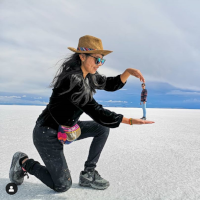
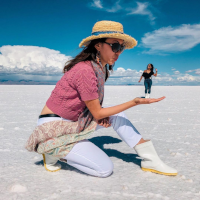
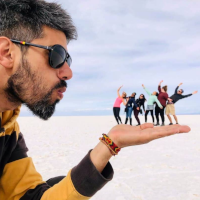
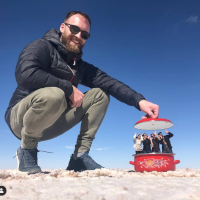
Ok these are actually pretty cool
Richard's desire to find the Beach is analogous to this widespread race to find the most "instagrammable" destinations around the world. Richard and all the other characters are obsessed with reaching this hidden oasis by any means necessary. Their obsession spirals into chaos and suffering by the end of the book. A warning, perhaps, by Garland that perpetual paradise is not all it's cracked up to be.
But whatever. The meaning of The Beach doesn't really matter. Travelling is cool, selfies are cool. The story was entertaining, I guess. Didn't have any effect on me though.
Read it if you want, or don't...I don't care. I'm gonna go listen to Nine Inch Nails.
